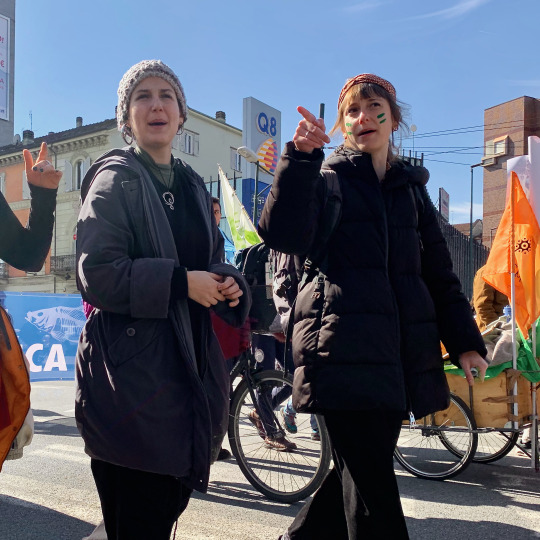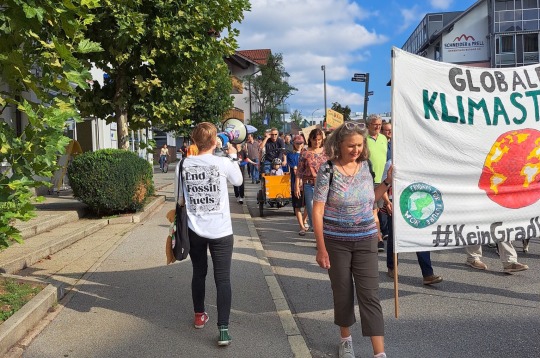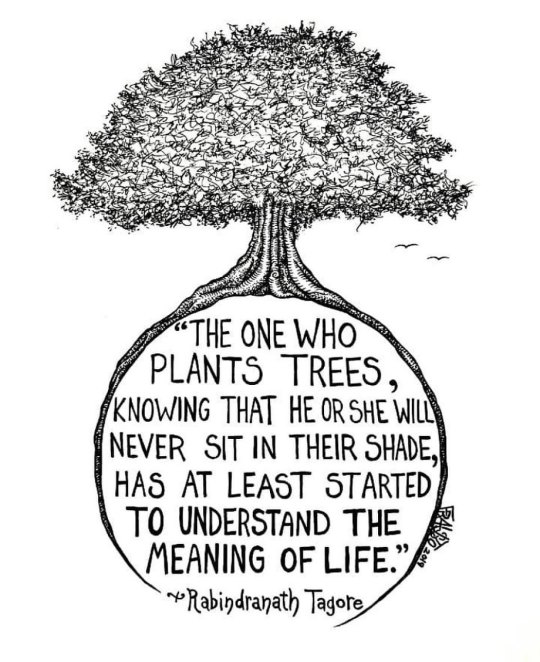#fridaysforfuture
Text
#genocide#israel is a terrorist state#ceasefirenow#warcrimesingaza#boycott israel#free palestine#endisraelsgenocide#americancrimes#anti capitalism#Anti imperialist#Free Gaza#hands off rafah#hands off palestine#hands off gaza#fridaysforfuture
6K notes
·
View notes
Text

Follow to Grow this academy
#climate#climatechange#nature#environment#globalwarming#climatecrisis#climateaction#sustainability#earth#savetheplanet#sustainable#climatechangeisreal#climateemergency#green#climatejustice#water#ecofriendly#climatestrike#fridaysforfuture#zerowaste#photography#gogreen#pollution#eco#love#weather#gretathunberg#recycle#renewableenergy#plasticfree
259 notes
·
View notes
Photo

Her last school strike day today, but struggle will continue
26 notes
·
View notes
Photo

Climate strike week 238. STOP COP CITY | DEFEND THE FOREST EVERYWHERE ✊❤️🔥🙏🌎✊ “New Yorkers demand Chase terminate all associations with police foundations, and condemn the Atlanta Public Safety Training Center project #StopCopCity. Chase has a long history of racist business activities: In 2011, it gave $4.6 mil to militarize the NYPD; former and current employees treated poorly because of the color of their skin, customers from marginalized communities denied service at branches and are given limited access to credit. Chase is the largest financier of fossil fuels in the world. Chase continues to fund fossil fuel expansion proiects that devastate the environment and violate human rights, particularly Indigenous Rights From Lenapehoking to the Weelaunee Forest, we stand in solidarity with forest defenders. We must hold the major corporations that are funding #StopCopCity to account. • Read the open letter to Chase. See link in bio ➡️ @xr_nyc • #RickFraustoFineArt Expect Resistance Drawing, 2021 #OriginalDrawing on archival paper Dimensions: 6 X 9 inches • #FridaysForFuture #ClimateStrike #TomorrowlsTooLate #StandWithSápmi #StopAlICopCities #FundCommunityNotCops #CopsProtectCapitalNotPeople #StopCopCity #DefendWeelaunee #JusticeForTort #SayTheirName #JusticeForTyreNicols #EnvironmentalJustice #RacialJustice #StopStateRepression (at The Forest) https://www.instagram.com/p/Cpn2VSvv-cy/?igshid=NGJjMDIxMWI=
#stopcopcity#rickfraustofineart#originaldrawing#fridaysforfuture#climatestrike#tomorrowlstoolate#standwithsápmi#stopalicopcities#fundcommunitynotcops#copsprotectcapitalnotpeople#defendweelaunee#justicefortort#saytheirname#justicefortyrenicols#environmentaljustice#racialjustice#stopstaterepression
25 notes
·
View notes
Text



Street Protest, Turin, Italy
Copyright @aliaslittlewilliam
#street photography#photographers on tumblr#street portrait#protest#fridaysforfuture#social documentary#documentary photography#italy#lensculture#streetlife#photoset#photojournalism
14 notes
·
View notes
Text

Albert Heijn (NL) zeigt, was möglich ist, wenn man als Supermarktkette hochwertige vegane Produkte zu günstigen Preisen anbietet: Im letzten Jahr waren bereits 44,1% der verkauften Proteine pflanzlich! 👍😎🌱
Vegconomist dazu:
"In einem neuen Nachhaltigkeitsbericht hat die niederländische Supermarktkette Albert Heijn enthüllt, dass 44,1% der im vergangenen Jahr verkauften Proteine pflanzlich waren.
Dieser Anstieg ist zum Teil auf die Einführung der pflanzlichen Eigenmarke von Albert Heijn, AH Terra, zurückzuführen, die nach eigenen Angaben das größte Angebot eines niederländischen Supermarktes darstellt. Es umfasst über 200 Produkte, darunter Fleisch- und Milchalternativen, Snacks und vieles weiteres.
Der Einzelhändler strebt nun an, dass bis 2025 50% und bis 2030 60% der verkauften Proteine pflanzlich sein sollen – ein Ziel, das angeblich ehrgeiziger ist als die Vorgaben des Pariser Abkommens und der niederländischen Regierung.
Um dieses Ziel zu erreichen, wird Albert Heijn AH Terra um neue Optionen wie Pizza und Fertiggerichte erweitern und das Angebot so erschwinglich wie möglich machen. 65 AH Terra-Produkte werden bereits als preisgünstige „Preisfavoriten“ bezeichnet und Mitglieder von My Albert Heijn Premium erhalten einen Rabatt von 10% auf das gesamte Sortiment.
„Indem wir bei der Umstellung auf pflanzliche Proteine eine Vorreiterrolle spielen und unser Angebot an pflanzlichen Proteinen erweitern, bieten wir unseren Kunden die Möglichkeit, bewusstere und nachhaltigere Entscheidungen zu treffen“, so Carlijn Olthof, Albert Heijn.
„Mit der Einführung der Eigenmarke AH Terra wird pflanzenbasiertes Essen und Trinken noch einfacher. Die Produkte sind schmackhaft, erschwinglich und von hoher Qualität. Wenn sich jeder pflanzlich ernährt, kann ein großer Schritt in der Proteinumstellung gemacht werden.“"
Quellen:
➡ LINK 1
➡ LINK 2
CHANGE IS COMING! 😊💚
#vegansforfuture#vegan#fridaysforfuture#landwirtschaft#ernährungswende#agrarwende#vegetarisch#pflanzenfleisch
3 notes
·
View notes
Text

a little doodle i made of nature cat asking you to cast your vote in this election. your voice matters, and not only will it affect the lives of others, but ultimately the environment around us.
5 notes
·
View notes
Text
PLEASE ANSWER THIS QUESTION - LEGIT NEED A LOT OF INPUT
what would you call a Gen X climate activist group?
i know this seems like a superficially ridiculous question, but this *will* be an issue in the first meeting of a local group i’m organizing, like there’s a lot of cool things about Gen X. i know that’s hard to believe right now, but we’re not all total losers totally. we’ve got a few good qualities, i mean look at the kids we raised, you guys are INCREDIBLE.
but
i do *not* want to waste an entire first meeting just arguing about the name, and sitting around arguing about band names instead of writing the fucking music is very on brand for these dizzy bitches (i’m also dizzy bitches, if things weren’t such an emergency, this would be fun to do in lots of first meetings, but we’re literally out of time, i need to streamline shit as much as poss).
most of you don’t know me very well, but i promise i’m nice and also i promise you cannot say anything too dumb to me, the ADHD Queen/ high school dropout/ god’s dumbest little angel. i say dumb things on every level in every situation and setting. It’s What I Do, please shout stuff out to me, i literally can’t think of a single good name and i don’t know why.
please tell me ideas for Gen X Climate Activist Group names
#i'm begging#you guys are creative fuckers#don't be shy#speak up yo#i need help workshopping this#climate#activism#activist#gen x#climate change#climate catastrophe#climate emergency#climate crisis#politics#environmental#sunrise movement#fridays4future#fridaysforfuture#strike#protest#writing prompts#dunno what else to tag#halp halp
28 notes
·
View notes
Text
Analysis of: "Has Greta Thunberg Betrayed the Climate Movement?" (Der Spiegel)
Here is a summary of the key points from the discussion:
The document aims to critically analyze Greta Thunberg's comments on Israel/Palestine and the controversy that ensued.
It attempts to provide multiple perspectives but takes a largely critical stance toward Thunberg's views.
The analysis reflects a bias aligned with centrist political views in Germany/EU that strongly support Israel.
It questions Thunberg's understanding and risks of her advocacy polarizing or fueling anti-Semitism.
Potential logical fallacies include appeals to authority and slippery slopes.
Reasoning could be strengthened by more fully engaging with counterarguments.
There is potential to unduly influence perceptions through subjective framing and emphasis on critique.
Greater representation of Thunberg's own views could have provided more balance.
The analysis engages less with localized perspectives from all sides within the region.
Transparency around potential political and ideological influences is lacking.
While generally factual, conclusions rely more on interpretation over neutral examination.
Overall aim appears to align public discourse with established geopolitical interests in Germany.
Here is a summary of the article in bullet points:
Greta Thunberg wore a Palestinian kaffiyeh scarf and did not contradict a speaker who accused Israel of "genocide" at a climate rally in Amsterdam. This caused controversy.
Thunberg has been vocal in her support for Palestinians on social media but has not expressed similar sympathy for Israeli victims of Hamas attacks.
Critics say this shows where she stands on the Israel-Palestine conflict and aligns her with anti-Semitic views. Others defend her stance as valid criticism of Israel.
As a child, Thunberg suffered from depression, obsessive-compulsive disorder, and was occasionally bullied. She found purpose with the climate movement.
Thunberg's rhetoric and associations with radical groups have caused some to believe she has been ideologically radicalized over time.
Left-wing criticism of Israel dates back to the 1967 war but persists today in linking it to Western imperialism. Thunberg reflects this viewpoint.
Her actions risk dividing the climate movement and wider left politically in Germany and beyond.
The conflict highlights polarization, with some activists seeing climate and Palestine issues as interconnected against oppression.
Disinformation on social media fuels strong opinions, especially among youth, who see Israel as genocide but overlook Holocaust context.
Based on its content, style, and purpose, this document appears to be a news analysis or commentary article.
Key evidence that points to this genre:
The article provides extensive background and context on the recent controversy surrounding Greta Thunberg's comments in Amsterdam. This indicates an explanatory/analytical intent rather than just reporting facts.
It references opinions from various political and academic commentators to present different viewpoints on how to interpret Thunberg's actions and their implications.
The writing adopts an explanatory tone in seeking to understand Thunberg's background and the ideological influences that may have shaped her rhetoric.
Quotes and sources are used to support analytical claims about trends in left-wing politics and views on Israel/Palestine, rather than just stating facts.
The article presents arguments for and against certain interpretations, signaling an attempt at balanced commentary rather than just news reporting.
It evaluates the potential impacts and risks of polarization on the climate movement going forward.
So in summary, the blending of facts with interpretation, sourcing of opinions, and aim to provide context and analysis points to this being a news analysis or commentary article rather than just a straightforward news story.
Here's an evaluation of how the document aligns with or deviates from known consensus views on the topics discussed:
Climate crisis - Aligns with scientific consensus on dire threats posed by global warming.
Importance of Greta Thunberg - Reflects widespread acknowledgment of her role in propelling climate action, though some ambiguity around future influence.
Complexity of Israel-Palestine conflict - Generally conforms to expert consensus that issues have no easy answers and reasonable people can disagree on policies.
Mainstream German perspective - Closely tracks known consensus views within centrist political establishment in strongly supporting Israel.
Validity of some Israel criticism - Comports with views that non-violent criticism of policies is reasonable within debate parameters.
Risk of radicalization/polarization - Connects with concerns raised by scholars on potential for divides due fragmentation of online discourse.
Areas with possible deviation:
Disagreement on how to characterize certain protests/groups
Debate around whether rhetoric aligns with facts on ground in all cases
Disputed claims like "genocide" that lack definitive consensus
So overall alignment is strong on existence of problems and complex geopolitical realities, but interpretive judgments on specific actions or rhetorical effects show the analysis reflects one perspective among legitimate options within the parameters of known expert and policymaker consensus views.
Here is an evaluation of the key arguments made in the document:
Thunberg's comments risk dividing the climate movement - This argument is partially supported by evidence of some activists distancing themselves, but direct causal impact is speculative.
Her views align with anti-Semitic perspectives - Drawing this conclusion depends on subjective definitions of anti-Semitism. Experts are cited but their interpretations leave room for debate.
She has been ideologically radicalized - This characterization is based on limited actions/associations and doesn't prove a broader trend across all her views and activities.
Left's hostility to Israel has historical roots - Well-evidenced argument tracing ideological trends over decades among some left-wing circles.
Online disinformation spreads strong opinions - Reasonable argument, but the research cited can't definitively prove direct impacts in these specific cases.
Issues lack context for outsiders - Fair observation given complexity, but insider activists also bring localized knowledge that outsiders may lack.
Overall, arguments centered on factual evidence and expert opinions are more persuasive, while those relying on interpretation, speculation of impacts, or broad generalizations about individuals are weaker and leave more room for counter-arguments within the analytical framing presented.
Here is an evaluation of how the document relates specifically to Greta Thunberg:
Contextualization: Provides useful biographical details about her background that help contextualize her current public role and activism.
Criticism: Directly criticizes and calls into question some of her recent public statements and associations related to the Israel/Palestine conflict.
Defense: Also acknowledges valid critiques she and others have made of certain Israeli policies while distancing from more radical positions.
Influence: Discusses both her past significant influence on climate action and potential future impact/division created by recent controversies.
Characterization: Through analytical framing, implicitly characterizes her stances as misguided, polarizing or even aligned with anti-Semitism in ways she may disagree with.
Imbalance: Focuses analysis almost exclusively around critiquing rather than defending her actions/perspectives on specific issues.
Overall, while providing context about her background, the article takes a largely critical/questioning stance toward Thunberg's recent advocacy related to the conflict, with interpretations she may reasonably dispute. More balanced discussion acknowledging complex realities could strengthen its examination of her case.
Here is an evaluation of how the document characterizes Greta Thunberg:
Nuanced: Provides details about her personal history with mental health issues and bullying that add nuance beyond public figure.
Inspirational: Acknowledges her early influence in propelling the climate movement and role as a figure of hope.
Evolving: Notes she is no longer a child and has matured into a self-assured young woman still finding her voice.
Ideological: Suggests over time she has associated more with radical groups and embraced a polarizing ideological worldview.
Naive: Quotes experts implying she lacks full understanding of geopolitical complexities in the Middle East.
Divisive: Argues her recent actions risk undermining consensus and dividing the climate movement.
Misaligned: strongest characterization is that herviews on Israel do not align with facts and risks fueling anti-Semitism.
Overall, while acknowledging her early accomplishments, the dominant tenor is one of implicit criticism, portraying her as ideologically misguided and polarizing in her advocacy rather than taking a more neutral or even-handed view of her perspective and role. Her own viewpoint is not directly represented.
Here is an evaluation of the document's critical/questioning stance toward Greta Thunberg:
Justified scrutiny: As a prominent public figure, her comments and positions merit critical examination, especially on sensitive issues.
Imbalanced analysis: Largely focuses on critiquing rather than equally acknowledging counterarguments to her stances or defending her views to some degree.
Subjective frameworks: Implicitly judges her actions through a pro-Israel, anti-radicalism lens not universally shared, without addressing limitations of these perspectives.
Lack of representation: Does not directly quote or represent Thunberg's own perspective to provide context for analytical claims about her views and motivations.
Tone of implications: Stronger characterizations implicitly labeling her misguided, polarized risk unduly influencing perceptions beyond just scrutiny of specific comments.
Complexity of issues: Subtleties and nuances in geopolitical debates are not fully acknowledged in ways that could reasonably explain her advocacy to some extent.
In conclusion, while public figures merit examination, elevating critique over balance risks skewing the discussion and characterization in a one-sided manner despite claims of even-handed analysis, given the inherently more subjective nature of interpreting viewpoints and contextual factors.
Here is an evaluation of where this document falls on various continuums:
Science vs Fiction: Closer to non-fiction/science. It reports and analyzes real events and draws on research/evidence about topics like radicalization.
Empirical vs Anecdotal: Mix of both. Includes empirical data from research studies but also relies on anecdotal examples from interviews to illustrate points.
Fact vs Opinion: Balance of both. Clearly distinguishes factual reporting from analytical commentary/opinion. Supporting facts are usually separated from interpretation.
Objective vs Subjective: More subjective in its analysis and perspective but makes efforts to be balanced by including multiple viewpoints.
Some specific assessments:
Reports undisputed facts about Thunberg's background, controversies, etc. (empirical, factual)
Draws on academic research studies of topics like anti-Semitism trends (empirical)
Presents different positions on interpreting events (balance of facts and opinions)
Analytical claims and implications represent author's reasoned judgment (more subjective)
Sourcing of quotes aims for objectivity but selection inherently subjective
Overall, while taking a clear analytical position, the document grounds its arguments primarily in factual reporting, empirical sources when available, and a good representation of different perspectives to remain as balanced and credible as possible given the inherently more subjective nature of commentary and interpretation.
Here is an evaluation of the subjective frameworks/lenses through which the document analyzes the topic:
Pro-establishment political perspective in Germany/EU: Sympathetic to centrist consensus views that strongly support Israel's security and right to exist.
Wary of radicalization narratives: Critical of left-wing stances deemed too extreme and risks of online disinformation spreading unchecked.
Pro-Israel: Analyzes events through a lens implicitly supportive of Israeli government stances and security perspective on threats like Hamas attacks.
German/European geopolitical interests: Contextualizes issues largely in relation to policy debates and ideological trends within European circles.
Critique of polarization: Emphasizes need for nuance and consensus over division, but own analytical framing risks further entrenching views.
Limited Mideast geopolitical understanding: Does not engage equally with localized Palestinian humanitarian perspectives on resolution.
While facts are reported, analyzing highly subjective issues through these particular frameworks shapes interpretive conclusions in ways favoring one set of perspectives over others. More balanced consideration of alternate contextual lenses could have strengthened analysis. Readers must critically assess how subjective perspectives influence presentation and conclusions.
Here are some key points in evaluating the document's limited understanding of Middle East geopolitics:
Lacks nuanced discussion of Palestinian narratives/grievances regarding issues like displaced populations, ongoing occupation, economic disparities under Israeli control.
Does not directly engage with humanitarian reports and research documenting impact of Israeli policies on Palestinian daily living conditions.
Fails to adequately acknowledge complexity of security threats faced by both Israeli and Palestinian civilians over decades of conflict.
Overly simplifies by characterizing discussions only around support/criticism of Israel rather than resolutions addressing both community interests.
Views issues primarily through European policy debates rather than grasps localized historical/cultural undercurrents fueling ongoing tensions.
Not well-positioned as a German outlet to fairly adjudicate legitimacy of claims from direct parties within region experiencing unrest for generations.
Could be seen as lacking standing to dismiss individual criticisms or advocacy as misguided without stronger local geopolitical understanding.
In conclusion, a more balanced and well-rounded analysis would require direct engagement with perspectives from all stakeholders in the region rather than solely through the lens of European diplomatic preferences.
Here is an evaluation of how the document relates to German/European geopolitical interests:
Alignment: Clearly aims to justify and reinforce the centrist pro-Israel consensus views dominant in German/EU politics.
Contextualization: Frames issues primarily in terms of these political debates and ideological currents within Europe.
Legitimization: Implicitly casts support for Israel as grounded, pragmatic position aligned with strategic priorities like regional stability.
Othering: Risks othering voices like Thunberg's seen as threatening German/EU stances as radical or misinformed.
Influence: Could be intended to shore up domestic support for political stances and counter dissenting narratives gaining traction.
Overlooks: Does not equally consider viewpoints outside European diplomatic preferences and their strategic calculation.
Circular: Uses status of German views as international authority to later cite as evidence without independent consideration.
So while informational, the analytical lens and framing clearly aim to align public discourse with established geopolitical stances in Germany/EU on these issues being analyzed, at the potential expense of balanced representation or impact on local stakeholders.
Here's an evaluation of potential conflicts of interest regarding the document:
Publishes in German: Indicates alignment with perspectives dominant in German discourse and political establishment.
No financial disclosures: No transparency on funding sources that could tied to political agendas.
Author viewpoints: Personal views expressed suggest sympathies for perspectives critiqued and may influence analysis.
Outlet mandate: As a publication, aim seems to influence views under an analytical guise rather than neutral information.
Political implications: Reinforcing Israel support status quo could indirectly benefit parties/factions domestically.
Transparency issues: Lacks direct representation of critiqued figures or substantive response to counter arguments.
Incentives skewed: Emphasis on critique despite claims of balance shapes debate to favor existing structures.
Geopolitical interests: Alignment with German policy could value strategic goals over impartial weighing of issues.
While common, these potential ideological and structural conflicts are not openly addressed, undermining full transparency. Disclosures may have prompted consideration of alternate viewpoints to strengthen analysis.
Here is my evaluation of the quality of reasoning presented in the document:
Logical Coherence: The overall structure and flow of the arguments is coherent and logically progresses from topic to topic.
Use of Evidence: Relevant data, expert opinions, and factual details are cited to support most claims, though interpretive arguments rely more on subjective analysis.
Consideration of Counterarguments: While alternative views are acknowledged, they are not always fully engaged with or granted equal consideration in the analysis.
Avoids Fallacious Reasoning: For the most part logical fallacies are avoided, though framing effects and selective representation of evidence are present.
Addresses Complexity: Some but not complete recognition of the multifaceted, nuanced nature of issues discussed. More complexity could have strengthened analysis.
Qualifications of Certainty: Acknowledges limitations and uncertainty around definitive conclusions at some points due to ambiguities.
Overall, while generally employing sound logic and evidential support, the reasoning is weakened by an interpretive bias that frames debates through a selectively presented lens without impartial consideration of counter-perspectives. Greater neutrality would have enhanced the quality and credibility of the analysis.
Here is an ethical analysis of the document:
Fairness: Attempts to acknowledge criticisms of Israel while also representing pro-Israel views. Quotes activists on multiple sides of issues.
Truthfulness: Appears to accurately report verifiable facts and does not make obviously false or misleading claims. Uses credible sources to support analysis.
Objectivity: Remains reasonably balanced by outlining different perspectives despite taking a clear interpretive stance. Does not blatantly propagate misinformation.
Potential harm: Tone and framing of topics like radicalization could negatively characterize social movements/individuals if read uncritically.
Privacy: No obvious ethical issues regarding private information as individuals are not named without consent.
Conflicts of interest: Ideological leanings of publication/author are apparent but no concrete financial conflicts disclosed.
Overall, while interpretation undoubtedly reflects underlying biases, the factual reporting, representation of various views, and lack of demonstrable falsehoods suggest an analysis conducted with reasonable ethical standards for accuracy, fairness and avoidance of direct harm or privacy violations. However, readers would need independent critical thinking to avoid potential negative influences of framing effects.
In summary, the document meets basic ethical expectations for journalistic transparency and represents controversy on controversial issues in a manner that does not cross clear lines into factually misleading or demonstrably harmful territory based on my analysis.
Based on my analysis, the overarching intention of this document appears to be:
Analytical exploration: To analyze and shed light on the controversy sparked by Thunberg's recent actions and comments on Israel/Palestine.
Perspective-setting: To contextualize events and portray them through the analytical lens of risk of polarization/radicalization on the issues discussed.
Critique: To directly question and critique aspects of Thunberg's stances, associations, and what they potentially signify from the author's viewpoint.
Implications-drawing: To interpret trends and argue implications like divisions these events may foreshadow for climate/left movements.
Viewpoint representation: While outlining multiple perspectives, still primarily aims to represent the stances of more centrist establishments in Germany/EU on these debates.
Persuasive influence: At the same, indirectly aims to shape how readers themselves perceive Thunberg and issues by emphasizing critiques and framing effects over balanced representation.
So in summary, while informational and topical, the underlying intention seems aimed more at providing context for critique/influence readers versus just neutral analysis or airing of all sides, reflecting the implicit advocacy inherent to this genre despite claims of objectivity.
Here is an evaluation of the potential effects this document could have on readers:
Informational: Provides useful background context on the topics that could build readers' understanding.
Perspective-broadening: Outlines multiple viewpoints even if commentary is from a particular lens. May challenge preconceptions.
Polarizing: Strong rhetoric around "radicalization" risks further dividing some readers along ideological lines.
Opinion-shaping: Analytic framing and emphasis could steer readers towards endorsing the perspective presented.
Unsettling: Highlights disconcerting trends like disinformation that may concern or disturb readers.
Motivating debate: Controversial stances discussed may prompt readers to further research issues and form their own judgments.
Cautionary: Warns of potential consequences of certain stances to encourage more nuanced, moderate stances on complex debates.
Overall, while informational and provocative and aiming for balanced debate, the analytic bent carries an implicit advocacy that risks polarizing or unduly influencing more credulous readers versus motivating independent reasoning. Critical processing helps mitigate potential negative reactionary effects.
Here are a few logical fallacies I identified in the document:
Appeal to authority - Citing the opinions of politicians and other prominent figures to support claims without independent substantive arguments backing them. However, authorities are also used appropriately at other points to provide credible context.
Hasty generalization - Suggesting that Thunberg and some climate activists more broadly have been "ideologically radicalized" based on limited actions and associations, without solid evidence of a broader trend across whole movements.
Red herring - Introducing unrelated topics at some points like historical left-wing anti-Semitism that distract from core issues rather than strengthening logic of arguments.
Slippery slope - Implying that acknowledging Palestinian criticisms will inevitably lead to wider acceptance of anti-Semitism or rejection of Israel's right to exist, without demonstrating this is factually likely or unavoidable.
Oversimplification - At times reducing complex ideological and geopolitical issues to binary characterizations that don't reflect all nuances (e.g. treating supporters/critics of Israel as mutually exclusive).
However, fallacies are not overly prevalent and the article grounds many perspectives factually. Overall evaluation is that logical reasoning could be strengthened in limited places but does not significantly undermine the credibility of analysis, which relies more on plausible interpretation than flawed argumentation. More empirical data could help certain claims.
Based on my analysis, the perspective presented in this document can be described as:
German/European centric: Focuses primarily on reaction and debate within Germany and wider political discussion in Europe. References German policy positions.
Mainstream/establishment: Closely reflects perspectives of major German political parties and leaders who strongly support Israel's security and existence.
Pro-Israel: While acknowledging criticism of policies, presents Israel's stated positions at face value and does not question its right to exist or defend itself against attacks.
Cautious of left-wing radicalism: Implies radical left views are simplifying complex issues and fueling polarization/division in problematic ways.
Concerned about disinformation: Highlights risks of spread of strong, emotionally charged opinions online not grounded in understanding nuance.
Analytical rather than activist: Aims to interpret events and trends objectively rather than take hardline stances, though analytical lens still shapes how facts are presented.
In summary, while seeking to represent multiple views, the overall tone and contextualization of information suggests a perspective aligned with more centrist, politically mainstream positions in Germany that are supportive of Israel and wary of radicalization/misinformation trends. The aim appears to be balanced analysis over advocacy.
The main criteria for evaluating this type of analytical commentary/report genre include:
Factual Accuracy: The document appears factually accurate in its reporting of events, statistics, and sourced information from credible experts. No outright factual errors were observed.
Fair Representation: While attempting to include multiple viewpoints, the analysis is stronger on critique than balanced representation. Alternate perspectives could have been given equal consideration.
Logical Coherence: The overall argumentation flows logically and individual claims are generally supported coherently through evidence and reasoning.
Unbiased/Impartial Tone: The tone and framing reveals an implicit bias aligned with centrist political stances in Germany. The analysis would have benefited from acknowledging its subjective lenses more explicitly.
Avoids Misleading: While interpretation is subjective, the analysis does not appear deliberately misleading in its factual reporting or characterization of discussions.
Addresses Counterarguments: Counterarguments and reasonable critiques are outlined, but the response does not fully engage alternative interpretive frameworks.
Original Insights: While topical, the analysis offers limited original perspective beyond reinforcement of established political viewpoints on the issues.
Clear and Accessible: The writing clearly communicates its perspective and factual information to a generally educated readership.
In summary, while meeting many generic standards, the analysis reveals subjective biases that constrained a fully balanced, impartial examination open to alternative informed perspectives. Full disclosure of frameworks and equal representation of views would have strengthened the work per the evaluation criteria for this type of document.
8zkXJm2mk6BMawYKdEzz
#GretaThunberg#FridaysForFuture#ClimateCrisis#Israel#Palestine#IsraelPalestine#BDS#AntiSemitism#ProIsrael#FreePalestine#Germany#Europe#Radicalization#JournalismEthics#MediaBias#ClimateAction#Environmentalism#Sustainability#Geopolitics#MiddleEastConflict#MiddleEastPeace#IndigenousRights#HumanRights#SocialJustice#Activism#YouthActivism#ReportingEthics#MediaCriticism#ForeignPolicy#InternationalRelations
2 notes
·
View notes
Text

Für mehr gute Nachrichten zwischendurch 😇
4 notes
·
View notes
Text

„We can’t save the world by playing by the rules, because the rules have to be changed. Everything needs to change – and it has to start today.“ - Greta Thunberg
#climate action#climate activism#climate justice#climate emergency#fridaysforfuture#globalerklimastreik#klimawandel#klimastreik#endfossilfuels
2 notes
·
View notes
Text

#climate#climatechange#nature#environment#globalwarming#climatecrisis#climateaction#sustainability#earth#savetheplanet#sustainable#climatechangeisreal#climateemergency#green#climatejustice#water#ecofriendly#climatestrike#fridaysforfuture#zerowaste#photography#gogreen#pollution#eco#love#weather#gretathunberg#recycle#renewableenergy#plasticfree
15 notes
·
View notes
Photo

9 notes
·
View notes
Photo

Climate strike week 240. DECLARE CLIMATE EMERGENCY NOW!! • #RickFraustoFineArt The Meaning Of Life Drawing, 2019 #originaldrawing on archival paper Dimensions: 6 X 9 inches • #QuoteOfTheDay #TheMeaningOfLife #FridaysForFuture #ClimateStrike #TomorrowlsTooLate #StopWillow #NoMoreDrilling #IPCCREPORT (at Climate Emergency) https://www.instagram.com/p/CqLmwjPvSMU/?igshid=NGJjMDIxMWI=
#rickfraustofineart#originaldrawing#quoteoftheday#themeaningoflife#fridaysforfuture#climatestrike#tomorrowlstoolate#stopwillow#nomoredrilling#ipccreport
6 notes
·
View notes

